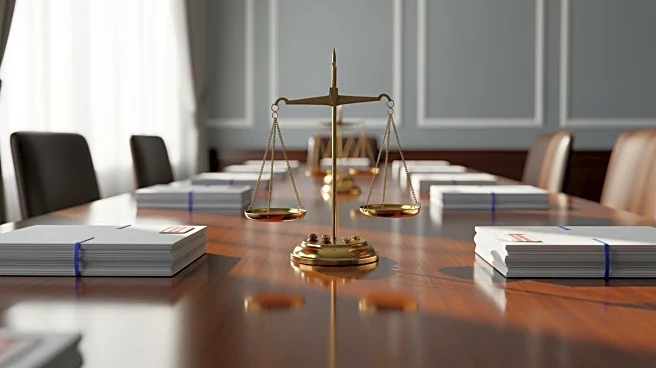What's Happening?
National Public Radio (NPR) will receive approximately $36 million in government funding to operate the nation's public radio interconnection system following a court settlement. This settlement partially
resolves a legal dispute where NPR accused the Corporation for Public Broadcasting (CPB) of succumbing to pressure from President Trump to cut off its funding. NPR claimed that CPB violated its First Amendment rights by attempting to redirect funds to Public Media Infrastructure, a media coalition not authorized to receive the funds. The settlement stipulates that CPB will not enforce President Trump's executive order to defund NPR unless mandated by a court. NPR has agreed to drop its request to block CPB from disbursing funds to PMI under a separate grant agreement.
Why It's Important?
The settlement is significant as it underscores the ongoing tensions between public media organizations and political influences. NPR's victory in securing funding is seen as a step towards maintaining editorial independence and upholding First Amendment rights. The case highlights the challenges faced by public media in navigating political pressures, especially when funding is threatened. The resolution of this dispute may set a precedent for how public media entities can defend their rights against political interference, ensuring that they can continue to operate without undue influence.
What's Next?
The legal proceedings are not entirely concluded, as NPR's lawsuit to block the implementation of President Trump's executive order remains active. A hearing is scheduled for December 4, where U.S. District Judge Randolph Moss will preside over the case. The outcome of this hearing could further impact the funding and operational dynamics of NPR and other public media entities. Stakeholders in public broadcasting will be closely monitoring the developments, as the case could influence future funding and policy decisions affecting public media.










